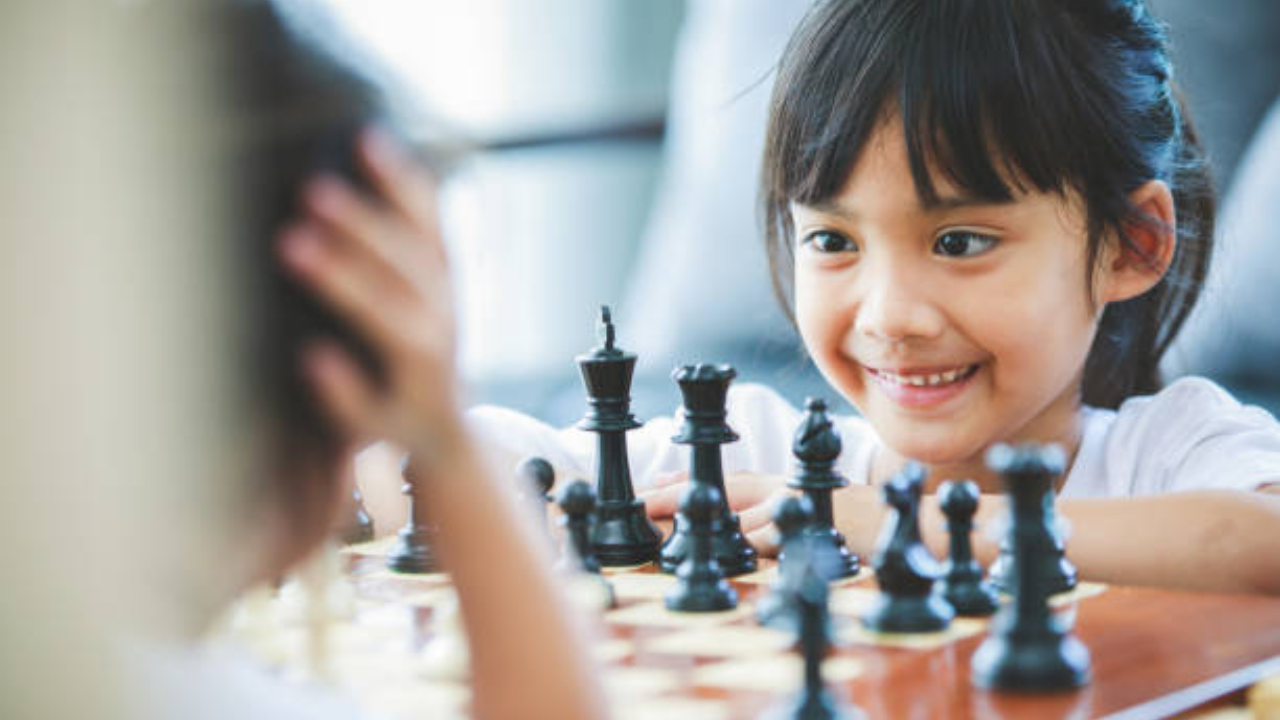Contents
Chess for mental health: How chess can help improve brain power in childrenHere, see how chess can help improve brain power in children.Improves problem-solving skillsincreases concentrationimproves memoryDevelops planning and decision makingenhances logical thinkingpatience and disciplinepromotes creativitypromotes social skillsEnhances cognitive skillsreduces anxietyimprove academic performanceBuilds resilience and emotional regulation
-
news
-
Health
-
mental health
Chess for mental health: How chess can help improve brain power in children
Chess is known to have many benefits such as educational benefits, promoting critical thinking and patience among players of all ages. Apart from these, it is also beneficial for mental health. Read on to know how chess helps improve brain power in children.

Know how chess can help improve the brain power of children
Photo: iStock
Chess is a board game played between two opponents. The game is conducted on an 8×8 checkered board with 16 pieces per player, including pawns, knights, bishops, rooks, a queen, and a king. Each piece has unique moves, and the objective is to defeat the opponent’s king, leaving it no way to escape.
Chess is a test of strategy, foresight and decision making and is known for its intellectual challenge. It is also known to have many benefits like educational benefits, promoting critical thinking and patience among players of all ages. Apart from these, it is also beneficial for mental health.
Here, see how chess can help improve brain power in children.
Improves problem-solving skills
Chess requires players to analyze the position, anticipate opponents’ moves, and formulate effective strategies. These processes help in improving children’s ability to think critically and deal with real life problems with a structured approach.
increases concentration
It is important to stay focused during a game of chess as losing focus can lead to errors. This habit of sustained focus can translate into better concentration in academics and other areas.
improves memory
Memorizing rules, strategies, and past game patterns helps strengthen a child’s memory. It also improves their working memory which is important for learning and multitasking.
Develops planning and decision making
Chess teaches children to plan several moves and understand their consequences in order to move forward. This helps them become better at taking informed decisions in life.
enhances logical thinking
The game helps develop logical reasoning as it requires players to understand cause and effect. It enables children to draw conclusions from given scenarios.
patience and discipline
Chess teaches children to think about moves rather than making impulsive actions. It promotes patience and discipline to analyze before acting.
promotes creativity
By exploring different strategies and tricks, children develop creative thinking skills. Chess encourages thinking outside the box to find unique solutions to challenges.
promotes social skills
Chess is often played in clubs, tournaments, or online communities. This helps children build friendships, learn sports skills and develop communication skills.
Enhances cognitive skills
Playing chess activates both sides of the brain, improving skills such as spatial reasoning, pattern recognition and analytical thinking.
reduces anxiety
The meditative nature of focusing on the board and its strategies can help children reduce anxiety and channel their ideas productively.
improve academic performance
Skills learned in chess, such as concentration, problem-solving and logical thinking, often translate into better performance in subjects such as mathematics and science.
Builds resilience and emotional regulation
Experiencing wins and losses helps children deal with successes and failures. It teaches them emotional resilience and the ability to handle stress constructively.
Get the latest news live on Times Now with breaking news and top headlines on mental health, wellness and more from around the world.


